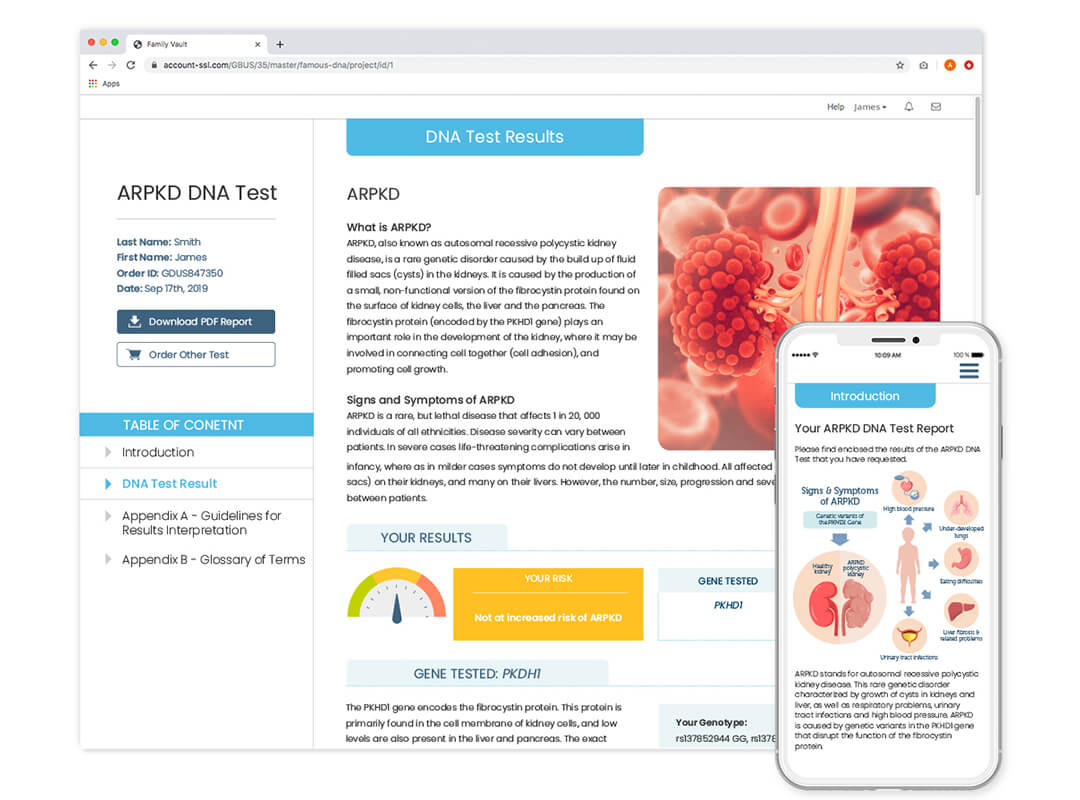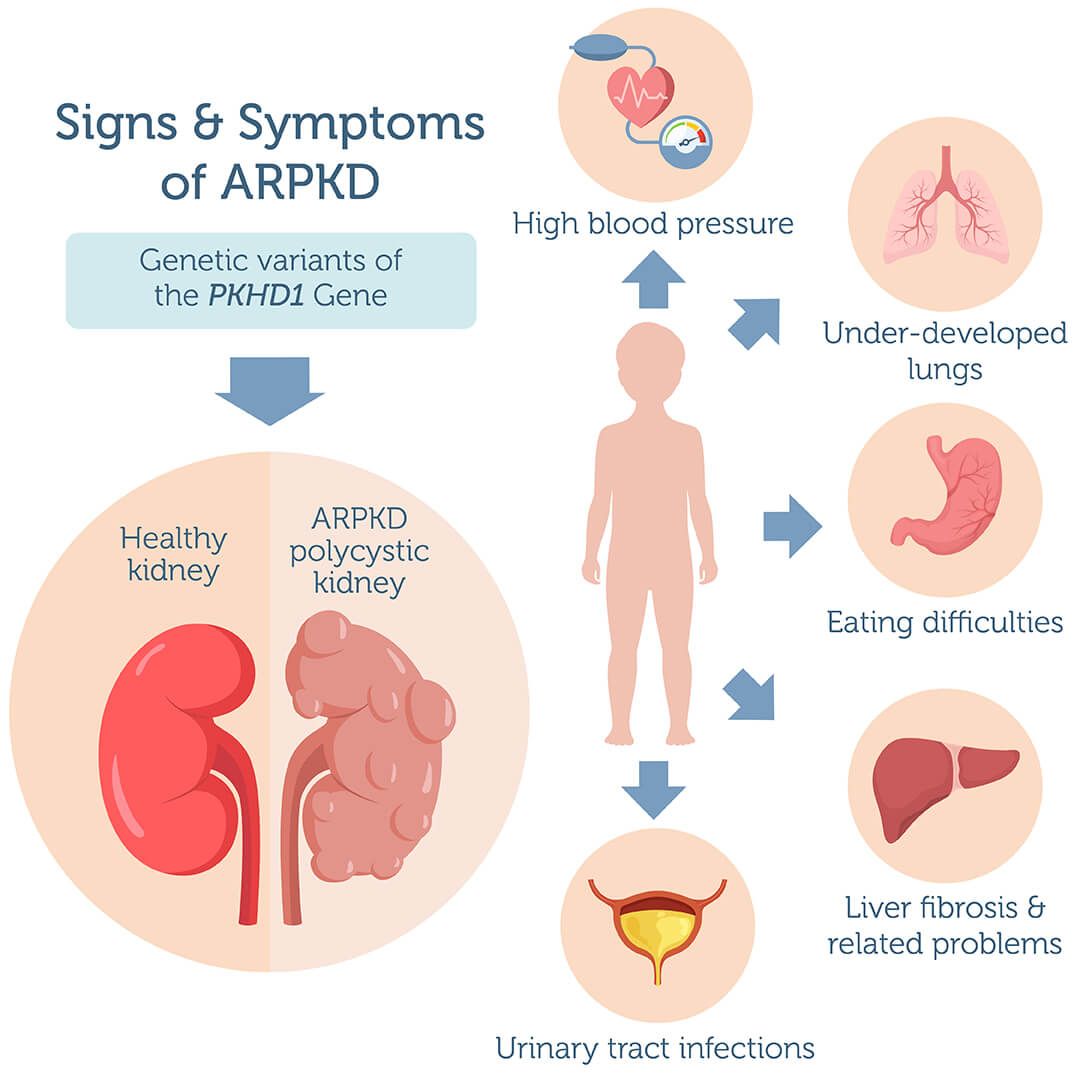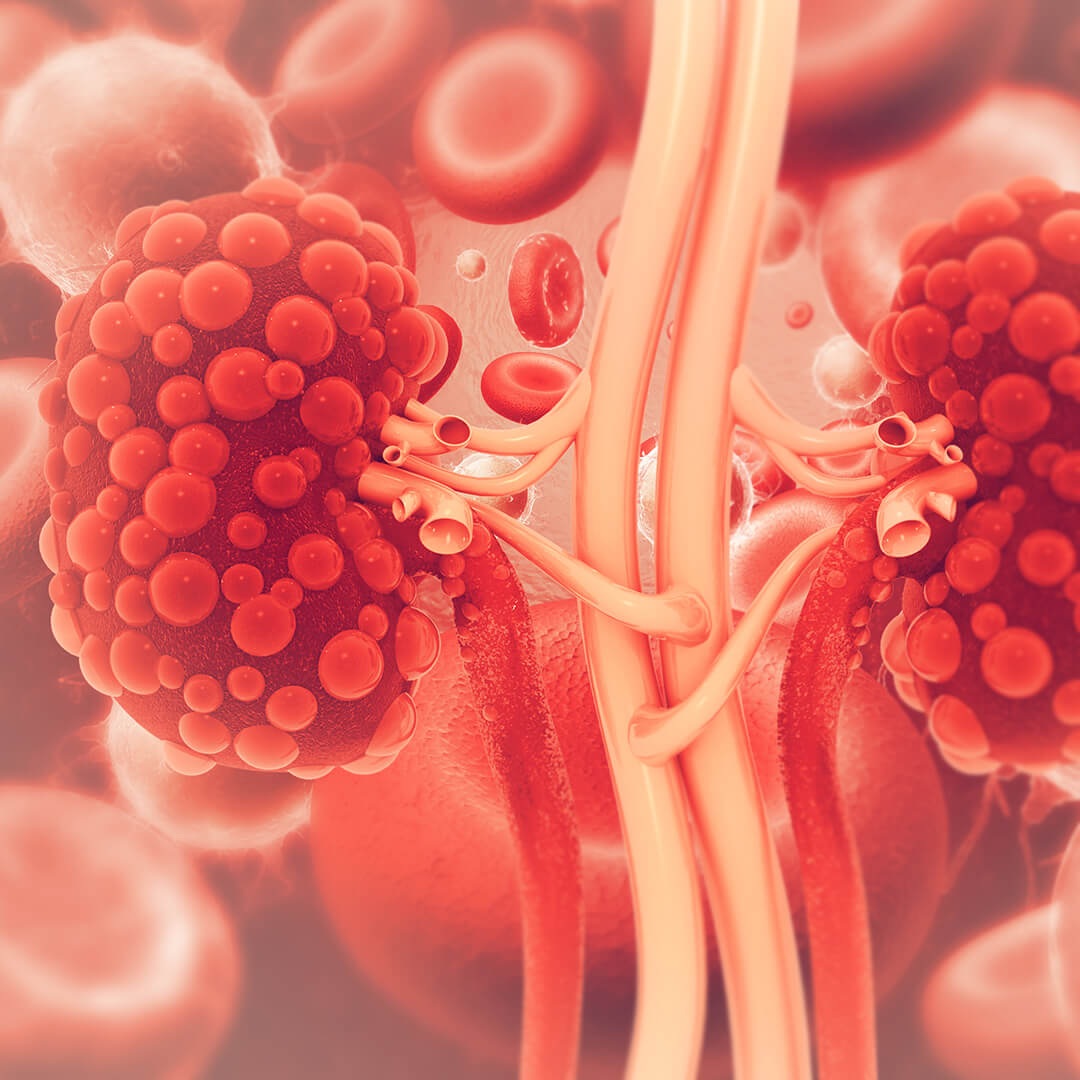ARPKD DNA Test
Are you a genetic carrier for ARPKD? Find out with this DNA Test.
- Detects three PKHD1 gene variants linked to ARPKD (autosomal recessive polycystic kidney disease)
- Characterized by cysts on the kidneys and liver
- Carrier screening test intended for couples who are planning to become pregnant
- 100% private and confidential online results
Already have DNA markers? Sign in and upload your data to view results.
Need to take the DNA Test? Order our easy-to-use swab kit.





